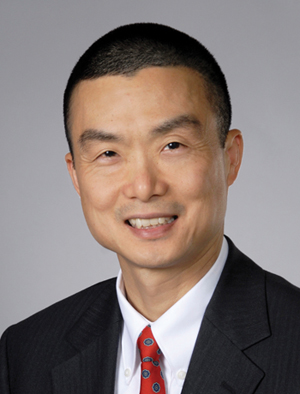By Sarah Yee
Northwest Asian Weekly

Dr. Anthony Chen
“Regardless of how good of a doctor you are, a lot of other elements are involved in patient care,” said Dr. Anthony Chen.
Chen made this statement while pondering the positions he has held in the past. He has been a family doctor and an advocate for underrepresented populations, and he is currently the director of health of the Tacoma-Pierce County Health Department.
His father is a doctor, but his three older brothers did not pursue the same path. His dream of being a doctor was eventually realized — but he didn’t immediately run with it.
“No, I didn’t want to go to med school at first,” said Chen.
In his undergraduate program, he studied biology and cultural anthropology. It was the philosophical part of his studies that intrigued him.
“In family therapy, the depth of what you do is great. [As a family doctor], you take care of the whole family — from pregnant woman, children, to elders. It’s not just about the patient, but the family and community,” said Chen.
In 1993, he moved to Seattle from the Chicago area. In 1996, he was the first and only doctor serving the International Community Health Services (ICHS) at Holly Park. Now, ICHS at Holly Park has expanded to a facility of more than 50 employees, partnering with Seattle Housing Authority for its expansion.
During that time, Chen also worked at Swedish Hospital, where he took care of many refugee patients. This experience sparked his interest in cross-cultural medicine. There are some diseases that certain ethnicities are more prone to. Chen thinks that they need to know.
“Asian Pacific Islanders are at 10 to 11 percent risk of acquiring hepatitis B, compared with two to three percent risk in the white population. There is a big need to educate the Asian Pacific Islander population about this problem. Hepatitis B sets you up for problems later on, such as liver cancer,” Chen explained.
Chen was the first co-chair of the National Task Force for Hepatitis B Immunization for Asians and Pacific Islanders, which focused on policy, public education, and community outreach. The organization has influenced many policy changes regarding hepatitis B screening and education.
“When hepatitis B immunization started, it was expensive. We didn’t realize how high the risk was in the Asian Pacific Islander population. [With the coalition involved at the national level], we got the recommendations changed [in the policy]. It’s very important that the insurance companies pay for the [hepatitis B] immunization,” said Chen.
The coalition also created brochures to educate different Asian Pacific Islander groups about hepatitis B. They chose faces for the brochure that people can make a connection with. The brochure offered helpful information in the readers’ respective languages.
“Cross-cultural medicine means talking their language, and talking with them about what we do that can fit into their culture,” said Dr. Chen.
In 2005, Chen moved to Boston to earn a Masters of Public Health at Harvard School of Public Health. He wanted to participate in a Fellowship in Minority Health Policy and to intervene at the policy level.
The move turned out to be a golden opportunity. That was when the state of Massachusetts reformed its health care program. Chen was there during the first two years when changes were implemented. This opportunity proved to be valuable experience in pioneering healthcare reforms.
Now, back in Washington state, he is working as the director of health of the Tacoma-Pierce County Health Department.
While physicians focus on areas of treatment, public health workers focus on disease prevention.
Chen described that his work can range from talking with a community group about amending the landlord-tenant act to include second-hand smoking in apartments as a concern, to working with health providers in dealing with the stress of soldiers and families at Fort Lewis. He even corresponds with information officers and the Seattle Times about health editorials.
“Public health [practice] is to make sure that things are available. We make recommendations and needs-assessment reports. For example, to build sidewalks and parks to make it easy for people to exercise, to talk about opening a farmers market so people can have access to healthy foods, to look at school lunch menus so kids are not consuming too much soda and candy. It’s exciting and challenging from direct patient care,” said Chen.
As an Asian American, Dr. Chen uses his core values to his advantage in health policy changes.
“Asians work hard. That’s certainly a value of our culture.
Then, you take the strength of our culture and combine it with the strength of American culture — to advocate, to be more vocal [about different issues].
“Just like when Governor Gary Locke served as the governor of Washington, he did not just represent Asians. He represented all citizens of Washington. [As the director of health of the Tacoma-Pierce County Health Department], I don’t just represent the Asians of Pierce County, but all citizens of Pierce County,” said Chen. ♦
Anthony Chen is one of Northwest Asian Weekly Foundation’s Asian American Pioneers in Healthcare. Meet him this Friday at an awards banquet at China Harbor Restaurant. For more information, visit pioneers.nwasianweeklyfoundation.org.
Sarah Yee can be reached at info@nwasianweekly.com.



